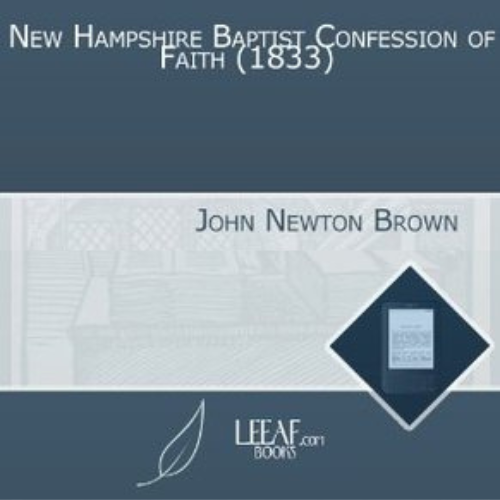《劍橋宣言》﹕為二十一世紀福音派尋前路(譯/張玉萍)
自從「使徒信經」開始,教會歷史上的信條和宣言都是為了針對當時代的問題而寫的,例如馬丁路德的九十五條是反對售賣贖罪券的文獻;改教運動的時候,曾經有很多信條出現,都是為了澄清更正教和天主教信仰的不同而出現。
1996年四月二十日,113位美國福音派領袖,其中包括博愛思 James Boice, 史普羅R. C. Sproul和魏爾斯David Wells等,成立了一個叫做「福音派信條聯盟」(Alliance of Confessing Evangelicals)的組織,在哈佛大學附近舉行了一個歷史性的高峰會議,他們聯同發表了一份「劍橋宣言」(Cambridge Declaration)[i],針對目前教會的一些流弊。下面是該文的翻譯﹕
今天的福音派教會被這個世代的精神所支配,日益失去基督的精神。作為福音派信徒,我們呼籲大家悔改,恢復歷史上的基督教信仰。
有一些字眼,會隨著時代轉變,「福音派」(Evangelical)一詞,正是如此。歷史上的福音主義從前聯繫不同教會傳統中的基督徒,為她的信仰發表宣言,維護基督教基本真理,就是那些偉大的教會會議所指出的,也繼承了十六世紀新教徒改教運動中的幾個「唯獨」。
今天,改教運動的精神明顯是微弱了,結果,福音派也容納了很多其他的事物,以至失去它的意義。我們面對喪失合一的危機,這合一,是經過幾個世紀的努力而達成的。因為這個危機,也因為我們對基督和教會的愛,我們嘗試去重申改教運動和歷史上福音主義的基本信仰,我們肯定這些真理不是因為它們在傳統中的角色,是因為它們是符合聖經的。
權威被腐蝕
唯獨聖經是教會生活中無誤的規章。但是今天的福音派教會已經不把聖經當作權威。實際上,教會常常被文化所領導。心理治療技術、商場策略、和娛樂界的步調,常常比神的話更影響教會。這些事物,更能左右教會的需要、她的功能和她的貢獻。牧師們忽略了他們監督崇拜的責任,包括音樂的神學內容。當聖經在實際的事情上失去權威,聖經真理就從基督徒的意識中消退,信徒不再留意聖經的教義,教會失去她的忠誠、道德權威和方向。
與其叫基督教信仰去遷就顧客的願望,我們必須宣講﹕唯有聖經的話是公義的標準、唯有福音是拯救的真理。聖經真理是教會思想、教導、和紀律所不可或缺的。
聖經讓我們看見我們的真正需要,不是我們自己所意識到的需要,把我們從我們流行文化中那些誘惑人的影像、陳詞濫調、許諾和優先次序中,釋放出來。只有在上帝真理的光中,我們可以正確地明白自己 ,又知道上帝的供應。所以,要在教會中教導和傳講聖經,講章必須解釋聖經,不是用來表達講員的意見或者這個世代的想法。若非得到神所要給我們的,我們不會滿足。
聖靈在個人經歷中的工作不能和聖經脫節,聖靈講話不會和聖經有異。除了聖經,我們不能認識神在基督裡的恩典。聖經的話才是真理的試金石,屬靈經歷不是。
論題一﹕唯獨聖經
我們再次肯定無誤的聖經是神唯一的、被寫下來的神聖啟示,只有它可以約束我們的良心。唯有聖經告訴我們得救的道理,聖經也是基督徒行為的標準。
我們否認任何信條、議會或者個人,可以約束我們的良心,也否認聖靈的話可以和聖經不同或相反,又反對個人屬靈經歷可以是上帝的啟示。
以基督為中心的信仰被腐蝕
當福音派信仰世俗化,和文化混淆,結果我們失去了絕對價值觀,產生放縱的個人主義,整全(wholeness)代替了聖潔、康復(recovery)代替了悔改、直覺代替了真理、感覺代替了相信、機遇代替了神的供應、目前的滿足代替了持久的希望。基督和祂的十字架被挪移,離開我們視野的中央。
論題二﹕唯獨基督
我們再次肯定救恩是基督在歷史上的中保工作所成就的。唯有祂無罪的生命和代贖工作足夠叫我們稱義,與神和好。
如果不宣講基督的代贖工作,或者不要求別人對基督有信心,我們否認它是福音。
福音被腐蝕
毫無根據地對人的能力滿有信心,是人性墮落的表現。這個錯誤的信心現在充滿了福音派﹕自尊福音(self-esteem gospel,或作自信運動),成功神學(health and wealth gospel)。福音變為商業產品,罪人變為顧客。如果基督教信仰有用,它才是真理。於是,不管教會的官方聲明是什麼,稱義的教義被忽略了。
神在基督裡的恩典不僅是必需的,而是唯一足夠叫我們得救的原因。我們承認人類生下來是在靈性上死了,甚至和重生的恩典合作的力量也沒有。
論題三﹕唯獨恩典
我們再次肯定我們從神的憤怒中被援救,完全是祂的恩典,是聖靈的超自然工作。當我們死在罪中,祂從罪的束縛中釋放我們,賜我們屬靈生命。
我們認為救恩沒有可能是人的作為。人的辦法、技術、或策略不能產生這個改變。信心不是來自一個未經重生的天然人性。
首要信條被腐蝕
稱義是唯獨本乎恩典、唯獨藉著信心、唯獨靠著基督。這是一個教會存亡攸關的信條。今天這個信條常常被忽略和歪曲,甚至被自稱福音派的領袖、學者、和牧師們否認。墮落了的人,總不能明白自己需要從基督而來的義;現代主義更火上加油,叫人不滿意聖經中的福音。我們卻讓這樣的心態,決定教會事工的性質,決定我們所講的道。
教會中出現了很多運動,認為明白會眾的社會狀況,在傳福音上,就和宣講聖經真理一樣重要。結果,這個神學信念經常和教會工作脫節。很多教會的商場手法更進一步,以至人難以分辨聖經的話和世界的話,奪去基督十字架的討厭,將基督教信仰變成世俗工作場所的成功原則和方法。
雖然我們可能還是相信十字架救贖的神學理論,這些運動實際上把它的意義倒空了。除了基督的代贖,沒有福音。基督為我們背負罪孽,祂的義算為我們的義。祂代替我們受刑罰,我們在祂的恩典中行走,那些罪過被赦免了的,被接納為神的兒女。除了基督的拯救工作,我們沒有任何原因可以被神接納,不是因為我們的愛國心、對教會的熱誠、或者在道德上正派。福音宣告神在基督裡為我們所做的,不是關於我們要做什麼才能到祂面前。
論題四﹕唯獨信心
我們再次肯定稱義是唯獨本乎恩、唯獨藉著信、唯獨因著基督。在稱義的時候,基督的義歸到我們,這是滿足神的公義的唯一辦法。
我們否認稱義是基於我們的任何功績;我們也不同意任何否認或譴責「唯獨信心」的機構,可以被接納為教會。
以神為中心的敬拜被腐蝕
何時聖經在教會失去權威、基督被代替、福音被誤解、信心被歪曲、只有一個原因﹕我們的心意代替了神,我們用自己的辦法做神的工作。基督不再是今天教會的中心,這是一個普遍的現象,令人悲慟。就是如此,我們將崇拜變成娛樂表演、傳福音變成市場學、相信變成技術、好行為變成對自己有好感、忠誠變為成功。結果,上帝、基督、和聖經對我們都沒有太大的意義、沒有太大的影響。
上帝不是要來滿足我們的野心、渴望、口味、或私人的屬靈興趣。我們崇拜的焦點必須是神,不是我們個人的需要和滿足。神應該在崇拜中作王,不是我們。我們關心的必須是神的國,不是我們的權力範圍、受歡迎程度、或者成功。
論題五﹕唯獨榮耀神
我們再次肯定救恩從神來,是祂所成就的,是為了祂的榮耀,所以我們必須常常榮耀祂。我們必須在神面前,在祂的權威下,一生為榮耀祂而活。
如果我們的敬拜變為娛樂表演,或者忽略傳講聖經的法令和福音,或者讓自我改良、自尊自信、自我實現、替代了福音,我們認為這樣不是榮耀神。
呼籲悔改
福音派教會從前的忠誠,和現在的不忠,是明顯的對照。這個世紀初,福音派教會支持了一個非凡的宣教工作,又為了聖經真理和基督的國度,建立了很多宗教機構,那時基督徒的行為和期望,和當代的文化有明顯的不同。今天卻不是這樣,今天的福音派圈子失去她對聖經的忠誠、道德指標、和宣教的熱忱。
我們為我們的世俗化而悔改。我們被我們世俗文化中的「福音」所影響,那不算是福音。我們不願意認真去悔改,我們無視自己的罪,卻清楚看見別人的罪,我們沒有盡責將耶穌基督的救恩告訴別人,所以教會軟弱。
我們也認真地呼籲那些自稱是福音派,但是在這宣言所討論的幾件事中,偏離了神的話的人,包括那些宣稱他們永生的希望不在對基督明晰的信心,那些宣稱今生拒絕基督的人將被殲滅,不是忍受神的審判和永遠的受苦,或者那些宣稱福音派和天主教在耶穌基督裡本為一的(雖然天主教不相信聖經中稱義的真理)。
「福音派信條聯盟」要求所有的福音派基督徒考慮在教會的崇拜、事工、決策、生活、和傳福音中實施這個宣言。
為基督的緣故,阿們。
上文雖然是一個針對美國福音派教會的宣言,但是中國人一向崇洋,有樣學樣,而且因為人性的敗壞,好的未學上,壞的先學會,所以,美國福音派教會的幣病大致上也是中國福音派教會的幣病。現在東南亞的中國人對EQ狂熱,於是教會也跟著一窩蜂,正是教會受文化影響的好例子。綜觀上面各點,心理學、商場手法、娛樂表演、個人屬靈經歷,也都是我們中國教會的網羅。這個並沒有誇張,我知道曾經有牧師請示教會長老會,可否接納一個唯獨相信聖經不信心理學的基督徒!也有教會講台講的是心理學或者個人神秘經歷,聖經是用來點綴的;有教會覺得聖經不夠實際而主日學改教心理學;主日崇拜有大詩班,小組詩班,再加上獨唱獨奏,甚至舞蹈;團契因為覺得查經沉悶,所以只安排康樂活動;聚餐人數遠比祈禱會人數多;義賣會比怖道會更熱鬧;教會也只好多舉辦各種各樣迎合人性的受歡迎節目。願華人教會一同悔改,彼此共勉﹕唯獨聖經、唯獨基督、唯獨恩典、唯獨信心,榮耀歸於獨一的真神。
《劍橋宣言》﹕為二十一世紀福音派尋前路 Cambridge Declaration by Alliance of Confessing Evangelicals
此文刊登於《今天華人教會》,1999年十二月)
本篇文章轉引字改革宗電視台網站:https://rtv.org.tw/cambridge-declaration/
***************英文*************************
Cambridge Declaration Heritage and Resources
April 20, 1996
Evangelical churches today are increasingly dominated by the spirit of this age rather than by the Spirit of Christ. As evangelicals, we call ourselves to repent of this sin and to recover the historic Christian faith.
In the course of history words change. In our day this has happened to the word “evangelical.” In the past it served as a bond of unity between Christians from a wide diversity of church traditions. Historic evangelicalism was confessional. It embraced the essential truths of Christianity as those were defined by the great ecumenical councils of the church. In addition, evangelicals also shared a common heritage in the “solas” of the sixteenth century Protestant Reformation.
Today the light of the Reformation has been significantly dimmed. The consequence is that the word “evangelical” has become so inclusive as to have lost its meaning. We face the peril of losing the unity it has taken centuries to achieve. Because of this crisis and because of our love of Christ, his gospel and his church, we endeavor to assert anew our commitment to the central truths of the Reformation and of historic evangelicalism. These truths we affirm not because of their role in our traditions, but because we believe that they are central to the Bible.
Sola Scriptura: The Erosion of Authority
Scripture alone is the inerrant rule of the church’s life, but the evangelical church today has separated Scripture from its authoritative function. In practice, the church is guided, far too often, by the culture. Therapeutic technique, marketing strategies, and the beat of the entertainment world often have far more to say about what the church wants, how it functions and what it offers, than does the Word of God. Pastors have neglected their rightful oversight of worship, including the doctrinal content of the music. As biblical authority has been abandoned in practice, as its truths have faded from Christian consciousness, and as its doctrines have lost their saliency, the church has been increasingly emptied of its integrity, moral authority and direction.
Rather than adapting Christian faith to satisfy the felt needs of consumers, we must proclaim the law as the only measure of true righteousness and the gospel as the only announcement of saving truth. Biblical truth is indispensable to the church’s understanding, nurture and discipline.
Scripture must take us beyond our perceived needs to our real needs and liberate us from seeing ourselves through the seductive images, cliches, promises and priorities of mass culture. It is only in the light of God’s truth that we understand ourselves aright and see God’s provision for our need. The Bible, therefore, must be taught and preached in the church. Sermons must be expositions of the Bible and its teachings, not expressions of the preacher’s opinions or the ideas of the age. We must settle for nothing less than what God has given.
The work of the Holy Spirit in personal experience cannot be disengaged from Scripture. The Spirit does not speak in ways that are independent of Scripture. Apart from Scripture we would never have known of God’s grace in Christ. The biblical Word, rather than spiritual experience, is the test of truth.
Thesis One: Sola Scriptura
We reaffirm the inerrant Scripture to be the sole source of written divine revelation,which alone can bind the conscience. The Bible alone teaches all that is necessary for our salvation from sin and is the standard by which all Christian behavior must be measured.
We deny that any creed, council or individual may bind a Christian’s conscience, that the Holy Spirit speaks independently of or contrary to what is set forth in the Bible, or that personal spiritual experience can ever be a vehicle of revelation.
Solus Christus: The Erosion of Christ-Centered Faith
As evangelical faith becomes secularized, its interests have been blurred with those of the culture. The result is a loss of absolute values, permissive individualism, and a substitution of wholeness for holiness, recovery for repentance, intuition for truth, feeling for belief, chance for providence, and immediate gratification for enduring hope. Christ and his cross have moved from the center of our vision.
Thesis Two: Solus Christus
We reaffirm that our salvation is accomplished by the mediatorial work of the historical Christ alone. His sinless life and substitutionary atonement alone are sufficient for our justification and reconciliation to the Father.
We deny that the gospel is preached if Christ’s substitutionary work is not declared and faith in Christ and his work is not solicited.
Sola Gratia: The Erosion of The Gospel
Unwarranted confidence in human ability is a product of fallen human nature. This false confidence now fills the evangelical world; from the self-esteem gospel, to the health and wealth gospel, from those who have transformed the gospel into a product to be sold and sinners into consumers who want to buy, to others who treat Christian faith as being true simply because it works. This silences the doctrine of justification regardless of the official commitments of our churches. God’s grace in Christ is not merely necessary but is the sole efficient cause of salvation. We confess that human beings are born spiritually dead and are incapable even of cooperating with regenerating grace.
Thesis Three: Sola Gratia
We reaffirm that in salvation we are rescued from God’s wrath by his grace alone. It is the supernatural work of the Holy Spirit that brings us to Christ by releasing us from our bondage to sin and raising us from spiritual death to spiritual life.
We deny that salvation is in any sense a human work. Human methods, techniques or strategies by themselves cannot accomplish this transformation. Faith is not produced by our unregenerated human nature.
Sola Fide: The Erosion of The Chief Article
Justification is by grace alone through faith alone because of Christ alone. This is the article by which the church stands or falls. Today this article is often ignored, distorted or sometimes even denied by leaders, scholars and pastors who claim to be evangelical. Although fallen human nature has always recoiled from recognizing its need for Christ’s imputed righteousness, modernity greatly fuels the fires of this discontent with the biblical Gospel. We have allowed this discontent to dictate the nature of our ministry and what it is we are preaching.
Many in the church growth movement believe that sociological understanding of those in the pew is as important to the success of the gospel as is the biblical truth which is proclaimed. As a result, theological convictions are frequently divorced from the work of the ministry. The marketing orientation in many churches takes this even further, erasing the distinction between the biblical Word and the world, robbing Christ’s cross of its offense, and reducing Christian faith to the principles and methods which bring success to secular corporations.
While the theology of the cross may be believed, these movements are actually emptying it of its meaning. There is no gospel except that of Christ’s substitution in our place whereby God imputed to him our sin and imputed to us his righteousness. Because he bore our judgment, we now walk in his grace as those who are forever pardoned, accepted and adopted as God’s children. There is no basis for our acceptance before God except in Christ’s saving work, not in our patriotism, churchly devotion or moral decency. The gospel declares what God has done for us in Christ. It is not about what we can do to reach him.
Thesis Four: Sola Fide
We reaffirm that justification is by grace alone through faith alone because of Christ alone. In justification Christ’s righteousness is imputed to us as the only possible satisfaction of God’s perfect justice.
We deny that justification rests on any merit to be found in us, or upon the grounds of an infusion of Christ’s righteousness in us, or that an institution claiming to be a church that denies or condemns sola fide can be recognized as a legitimate church.
Soli Deo Gloria: The Erosion of God-Centered Worship
Wherever in the church biblical authority has been lost, Christ has been displaced, the gospel has been distorted, or faith has been perverted, it has always been for one reason: our interests have displaced God’s and we are doing his work in our way. The loss of God’s centrality in the life of today’s church is common and lamentable. It is this loss that allows us to transform worship into entertainment, gospel preaching into marketing, believing into technique, being good into feeling good about ourselves, and faithfulness into being successful. As a result, God, Christ and the Bible have come to mean too little to us and rest too inconsequentially upon us.
God does not exist to satisfy human ambitions, cravings, the appetite for consumption, or our own private spiritual interests. We must focus on God in our worship, rather than the satisfaction of our personal needs. God is sovereign in worship; we are not. Our concern must be for God’s kingdom, not our own empires, popularity or success.
Thesis Five: Soli Deo Gloria
We reaffirm that because salvation is of God and has been accomplished by God, it is for God’s glory and that we must glorify him always. We must live our entire lives before the face of God, under the authority of God and for his glory alone.
We deny that we can properly glorify God if our worship is confused with entertainment, if we neglect either Law or Gospel in our preaching, or if self-improvement, self-esteem or self-fulfillment are allowed to become alternatives to the gospel.
A Call To Repentance & Reformation
The faithfulness of the evangelical church in the past contrasts sharply with its unfaithfulness in the present. Earlier in this century, evangelical churches sustained a remarkable missionary endeavor, and built many religious institutions to serve the cause of biblical truth and Christ’s kingdom. That was a time when Christian behavior and expectations were markedly different from those in the culture. Today they often are not. The evangelical world today is losing its biblical fidelity, moral compass and missionary zeal.
We repent of our worldliness. We have been influenced by the “gospels” of our secular culture, which are no gospels. We have weakened the church by our own lack of serious repentance, our blindness to the sins in ourselves which we see so clearly in others, and our inexcusable failure to adequately tell others about God’s saving work in Jesus Christ.
We also earnestly call back erring professing evangelicals who have deviated from God’s Word in the matters discussed in this Declaration. This includes those who declare that there is hope of eternal life apart from explicit faith in Jesus Christ, who claim that those who reject Christ in this life will be annihilated rather than endure the just judgment of God through eternal suffering, or who claim that evangelicals and Roman Catholics are one in Jesus Christ even where the biblical doctrine of justification is not believed.
The Alliance of Confessing Evangelicals asks all Christians to give consideration to implementing this Declaration in the church’s worship, ministry, policies, life and evangelism.
For Christ’s sake. Amen.
This declaration may be reproduced without permission. Please credit the source by citing the Alliance of Confessing Evangelicals.






